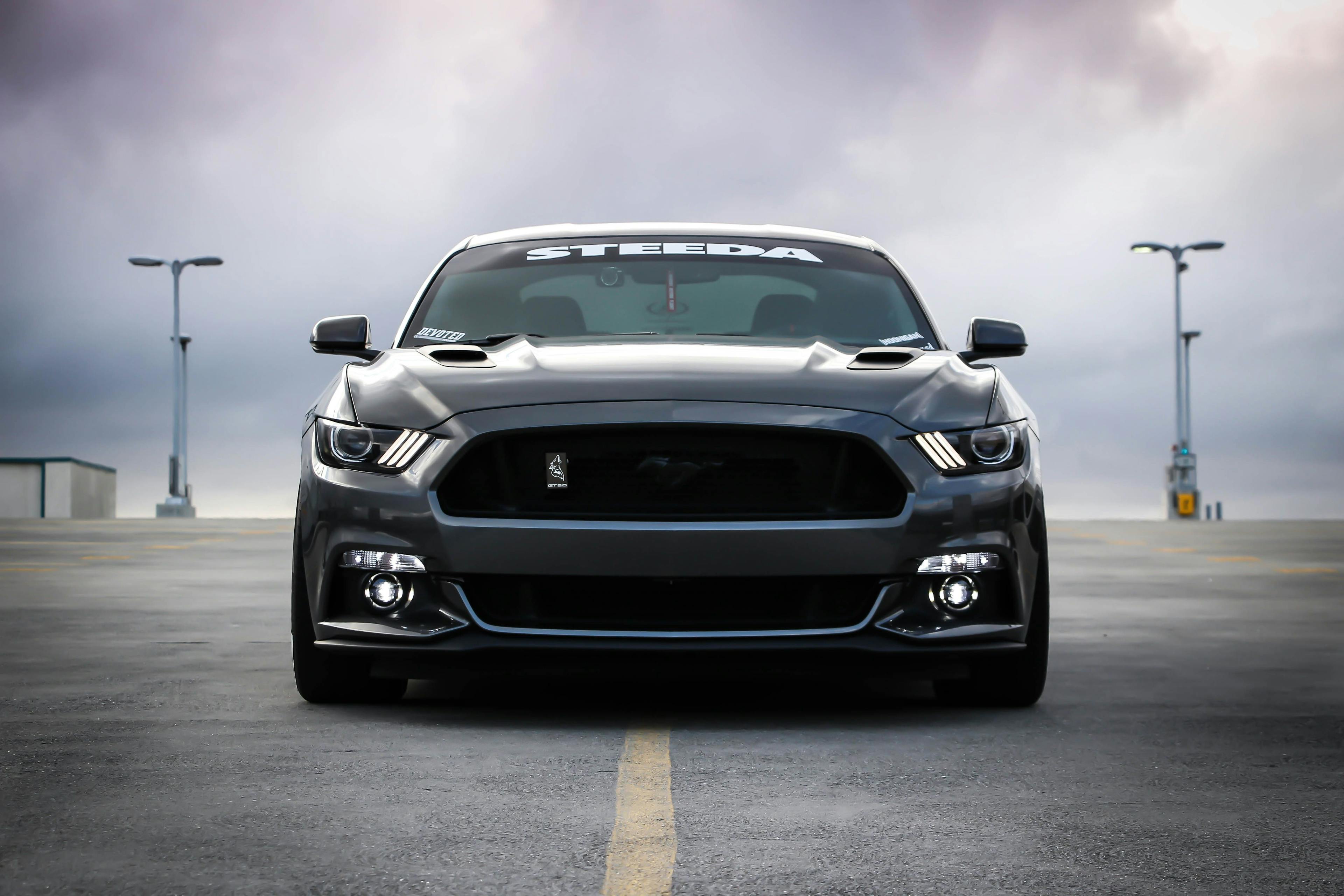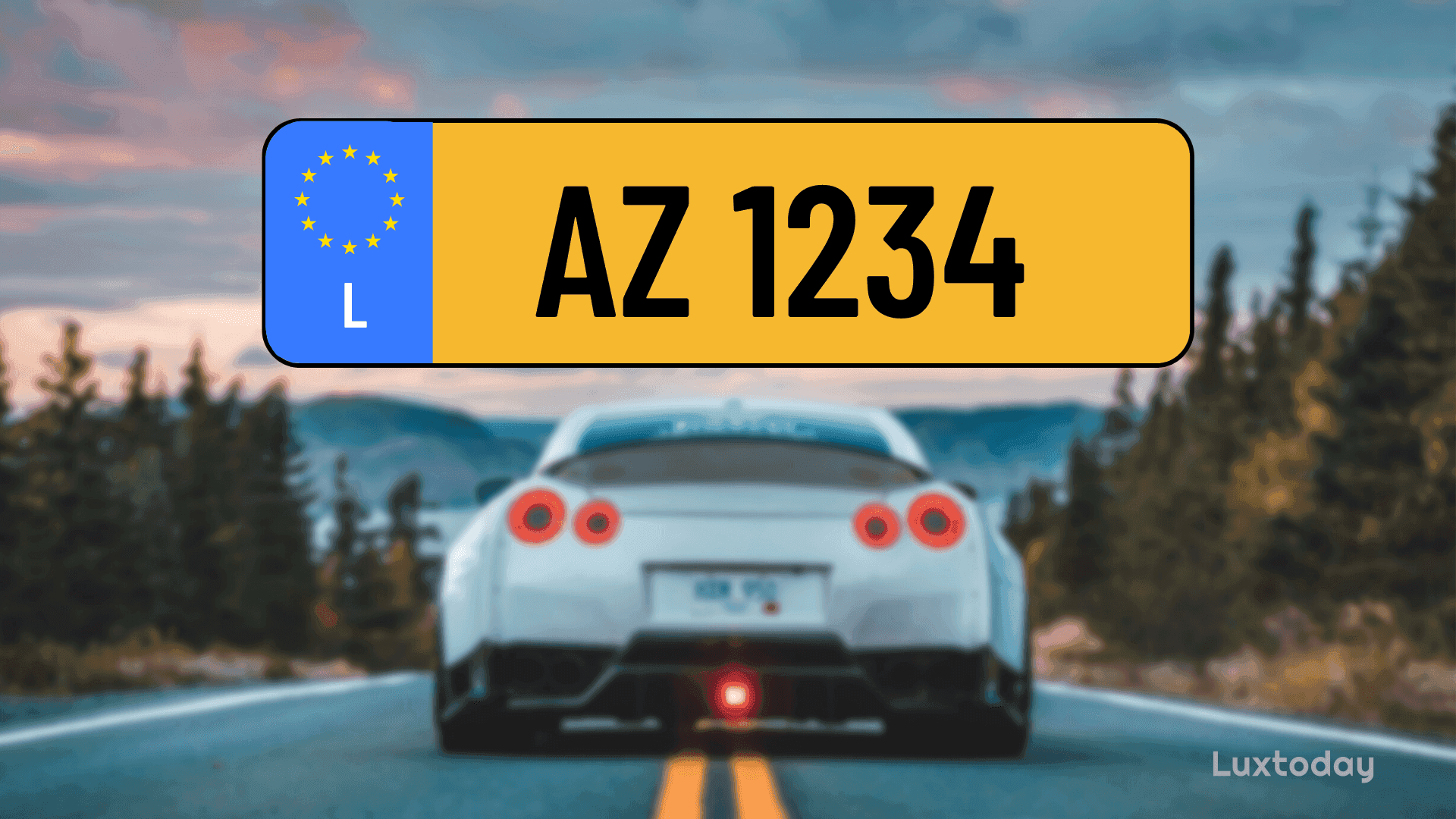
How to register a car in Luxembourg
In this article, we will guide you through the process of registering a car in Luxembourg: gathering the necessary documents, completing the registration, getting license plates, and the information you need to know to ensure a hassle-free experience.
Registering a car in Luxembourg is a necessary process for all vehicle owners in the country. However, for first-time car owners, expats, or those who are not familiar with the usual way of things concerning car ownership legislation in the Grand Duchy, it can seem complicated and overwhelming.
Before starting the registration procedure, it's important to determine whether you actually need to do it. Generally, you will need to register a car in Luxembourg in the following cases:
You have moved to Luxembourg or plan to do so
You plan to import a car you own from abroad
In addition to these cases, there may be other situations in which you are required to register a car in Luxembourg, such as if you purchase a car from another individual or if you acquire a company car.
There are two exceptions for special groups of people:
Foreign students who intend to study in Luxembourg are not subject to car registration
Workers in Luxembourg who are given a vehicle by a company that is registered in another EEA Member State
After determining whether you need to register your vehicle, the next step is to collect the paperwork that you must provide for the procedure. The first two necessary documents (invoice and registration) are supposed to be in your hands when you became the owner of a car. If you for some reason don't — contact the person or company with whom you purchased the vehicle.


Luxembourgish license plates consist of two letters, followed by four numbers. The first letter on the license plate can indicate the region in Luxembourg where the vehicle is registered, while the second letter is usually chosen by the vehicle owner. The four numbers in the middle of the license plate are assigned sequentially by the Luxembourgish authorities.

License plates here have a yellow background with black lettering and are made of aluminum. They also feature the European Union flag and the letter L under it: which stands for Luxembourg.
It is necessary to install license plates on a vehicle before driving it on public roads in the country. Before initiating the registration process, you must request a registration number for the vehicle.

Sergey in interview for Luxtoday
Normally, you will have two options. You can opt for the current series of numbers or select a personalized number, but it will add a fee. Keep in mind, that the ordinary plates are connected to the vehicle, not the owner, and there is no special market for custom plates.
Current series numbers, these numbers are:
- Affixed to the vehicles and remain with them throughout their lifetime.
- Composed of 2 letters and 4 digits.
- Assigned in order (you will be given the next available in the series).
- Subject to a 50 euros tax, but the fee payment is due only when you register the vehicle.
Personalized registration numbers, these numbers are:
- Retained by their owners unless they surrender them.
- Created according to three versions of numbers:
- Subject to a 50 euros tax plus a personalization fee of 50 euros if it’s the first time you use the number. If you want to take someone else number, that is no longer valid, the fee will be only 24 euros. The tax and extra fees are due only when you register the vehicle.
When a number in Luxembourg has been reserved you will receive a letter at your residence address stating what number was assigned or chosen. To apply for a registration number, you can go to MyGuichet.lu, use the MyGuichet.lu mobile application or contact SNCA (Société Nationale de Circulation Automobile).
Upon receiving confirmation of your reservation, it is necessary to have your registration plates produced by an approved manufacturer. There is a list of all of them available on the SNCA website, where you can choose the best option for you.
In contrast to various registration systems abroad, obtaining a registration number does not imply that the vehicle has been registered or has been granted registration approval automatically. Rather, it simply reserves the selected number for future use.
| Plate manufacturer | Address |
| CT For You SARL-S | 26, rue Principale L-8805 RAMBROUCH |
| EASY-DRIVE SARL | 226 Route de Thionville L-5821 Howald |
| Garage R&C Boewer SARL | 55, Haaptstrooss L-9835 Hoscheid-Dickt |
| Garage Schiltz Büderscheid | 2, route de Wiltz L-9643 Büderscheid-Wiltz |
| GMC SHOP MARNACH | Nordstrooss Shopping Mile 2 , Marbuergerstrooss L-9764 Marnach |
| GRÜN SIGNALISATION | 35 Rue des Scillas L-2529 Howald |
| LUX SIGNALISATION SARL | Zone Industrielle J-P Thill L-9085 Ettelbruck |
| LUX SIGNALISATION SARL | 164A, rue de Belvaux L-4026 Esch/Alzette 1, rue Jos Kieffer L-4176 Esch/Alzette |
| LUX SIGNALISATION SARL | Rue de Luxembourg "Op der Hokaul" L-5230 Sandweiler |
| LUX-PLAQUES S.A.R.L. | 202 Route de Luxembourg Bereldange |
| LUX-PLAQUES S.A.R.L. | 2 Grand-Rue L-9710 Clervaux |
| PLACKEN-ATELIER FRIDHAFF | Rond Point Fridhaff L-9209 Diekirch |
| PLAQUES MOINS CHERES S.A. | 30 Rue Jos Kieffer L-4176 Esch-sur-Alzette |
| PLAQUES MOINS CHERES S.A. | 53 Rue de Noertzange L-3670 Kayl |
| PLAQUES MOINS CHERES S.A. | Rue de Luxembourg "Op der Hokaul" L-5230 Sandweiler |
| PLAQUES MOINS CHERES S.A. | 216, route d'Arlon L-8010 Strassen |
| WEROCO SARL | Zone Industrielle Rolach, Hall 2 L-5280 Sandweiler |
When registering a car in Luxembourg, this certificate is one of the required documents that must be provided to the authorities. The EU Certificate of Conformity (COC) is a document that confirms that a car meets the safety and environmental standards set by the European Union.
It is valid in all EU countries once you receive it for your vehicle. Do not mix it up with National Certificates of Compliance, which are only valid in the country where it was issued. The document is obligatory for all new cars that are sold or registered, so if you plan to buy a brand-new car in Luxembourg, you will receive these documents with it.
The certificate includes details about the car's safety features, such as airbags, seat belts, and braking systems. The COC is issued by the car manufacturer and is a legal document that certifies that the car meets the requirements for approval.
To obtain a compliance certificate for a car, the manufacturer must carry out a series of tests and inspections to ensure that the car meets the requirements of the system. The certificate is then issued by the manufacturer and provided to the owner of the car.
For previously owned cars
If your old manufacturer cannot provide you with the certificate, but you have the technical data documented in the foreign registration certificates or previous technical reports, you may attach these documents when registering the vehicle. SNCA should be able to proceed with the registration without problems or guide you to the next step.
If you don’t have a COC and the technical data is incomplete, you must visit an authorized technical service center in Luxembourg to obtain a technical report for the vehicle.
Before driving your car on public roads in Luxembourg, it is mandatory to have a third-party civil liability-type insurance policy in place. To get insurance for your vehicle, you need to provide the vehicle number and Luxembourg registration number to an approved insurance company.
Once the insurer has verified the details of your vehicle, they will issue you a white card and proof of insurance in the form of a sticker. This proof of insurance is necessary to register the vehicle in your name.
There are various companies, that provide insurance services in Luxembourg. You need to choose the right one, based on the compensation amounts, best offers, and other important factors. The most popular insurance companies in Luxembourg are AXA, Bâloise, Foyer, and LALUX.
If you're purchasing a new or used vehicle from a country outside the European Union, you'll need to carry out certain customs clearance formalities to register it in Luxembourg. This procedure includes customs formalities for the payment of customs duties and the VAT if it’s a new car.
To customs clear the vehicle, you must bring it to one of the customs offices of the Customs and Excise Agency in person to obtain a 705 sticker. This sticker is a document proving that the vehicle is in order regarding VAT and is required for registration
You will need to bring the originals of the following documents to the agency (they will give them back to you later):
- The Certificate of Conformity (COC).
- An invoice or a sales contract.
- The registration number reservation paper.
- The previous registration certificate (if the vehicle has already been operated).
- The insurance certificate.
- Your national identification number.
Customs duties and VAT can be an important amount so be sure to factor that into your plans.

Sergey in interview for Luxtoday
As a car owner, it is your responsibility to ensure that your car is in a roadworthy condition at all times. This means that your car should be regularly maintained and serviced, and safe to drive. You are required to present your car for roadworthiness testing, which is a mandatory inspection that assesses the safety and environmental standards of your vehicle and gives you a Certificate of roadworthiness.
You will need to provide proof that it has passed a roadworthiness test in your previous country of residence. That means, that if you already have a certificate for a vehicle in another EEA Member State or Switzerland, it will remain valid as long as you register the vehicle in Luxembourg within 6 months of arriving at the commune.
A certificate that is done correctly is valid even if the ownership of the car changes: you won't need to obtain a new certificate if you buy your car from an individual.
How to pass a technical inspection
If you don't have a valid certificate, or the inspection documents are not up to date, you must have the vehicle inspected by an approved technical inspection body in Luxembourg before you can register it. The inspection will cover the safety and roadworthiness of the vehicle, so it's important to make sure that the vehicle is in good condition before you take it in for inspection.
It is impossible to pass the technical inspection before you initiate the process of registration for the vehicle. If there is no information on the registration form of the car, then the inspection will not be carried out.
There are several companies, that can perform authorized inspections for the registration of cars in Luxembourg. All of them have convenient online appointments available on the website, and price rates for all types of vehicles can be found there.
| Company name | Address | Contacts | Working hours | Price (personal car inspection) |
| DEKRA | 4 Rue du puits Romain, Bertrange | Phone: (+352) 27 40 0791 Email: automotive.luxembourg@dekra.com Website: www.dekra.lu | Monday to Friday: 7 a.m. to 5 p.m. Saturday: 7 a.m. to 2:30 p.m. Sunday: closed | 79 euros; 28 euros (recheck) |
| LUKS | 30 Route de Luxembourg, Lorentzweiler 5 rue Robert Stumper, Gasperich | Phone: (+352) 28 22 43 1 Appointment: (+352) 28 22 43 333 Website: www.luks.lu | Monday to Friday: 7 a.m. to 7 p.m. Saturday: 7 a.m. to 1 p.m. Sunday: closed | 69 euros; 40,5 euros (recheck) |
| SNCT | 11 rue de Luxembourg, Sandweiler 22 rue Jos Kieffer, Esch-sur-Alzette 251 route de Luxembourg, Livange 23 Marbuergerstrooss, Marnach | Phone: (+352) 26 15 62 500 Appointment: (+352)26 15 62 222 or rdv@snct.lu Website: www.snct.lu | Monday to Friday: 7 a.m. to 7 p.m. (except Livange and Marnach) Saturday: 7 a.m. to 1 p.m. Sunday: closed | 64,5 euros; 33,5 euros (recheck) |
To register your car, you will need to pay the stamp duty. We mentioned before, that you will need to pay for your license plates later when you reserve them. The moment had come. The amount will depend on the registration number type you have chosen:
- 50 euros for the current series numbers;
- 100 euros for personalized numbers (50 euros of the normal tax + 50 euros extra fee);
- 74 euros for personalized numbers – reuse (50 euros of the normal tax + 24 euros extra fee).
To pay the stamp duty you have two options, paying in-person, and with a wire transfer:
Personal visit
Make a bank transfer into the account LU76 0019 5955 4404 7000 (BIC: BCEELULL)
After the technical Inspection, you should already have all the necessary documents, now it’s time to take them all and go to the SNCA to register your vehicle. To avoid mistakes, follow the instruction:
- Make an appointment on the official SNCA website
- Wait for a response email
They will send you an email with an application form (registration certificate application form), a memo, and the date of the appointment. You must complete that form and bring it along with the full package of documents for car registration on the day of the appointment.
- Get registration approval
Within 8-10 days, you will receive an answer about whether the registration is approved or not.
- Pay the registration fee
If it is approved, you must go to SNCA and pay the registration fee.
- Receive the document and check them carefully
Special attention should be given to the correct spelling of the owner's name and surname, model of the car, color, and other data in the received documents.
- Receive your registration certificate and temporary tax sticker
If everything is in order, the SNCA will issue your registration certificate and a provisional tax sticker valid for 30 days. All vehicles registered in Luxembourg, are subject to the road vehicle tax that needs to be paid to the Customs and Excise Agency every year. With the provisional tax sticker, you have 30 days to pay that tax, you will be notified of the amount to be paid and once the payment has been made, you will receive the permanent road tax receipt by post.
Read article
How much does it cost to register a car in Luxembourg?
The cost depends on the prices of the specific companies and other services you might need, but on average the registration of a car in Luxembourg will cost you about 1000 euros of fees and service payments, not including the VAT. We calculate the price based on these numbers:
- Obtaining license plates: 50 euros or 100 euros for personalized numbers.
- Production of license plates: 35 euros (price may vary from manufacturer company).
- Customs broker: 250-500 euros.
- Certificate of compliance for the car, if there is no EU certificate: 250-500 euros.
- Fee for car registration: 88,4 euros (SNCA).
- Technical inspection: 70 euros.
- PTI (production of documents and subsequent registration fee): 126 euros (SNCA)
Frequently Asked Questions (FAQ)
What documents do I need to register a car in Luxembourg
You will need the following documents: registration certificate application form; an invoice or sales contract; foreign registration documents; the tax stamps; certificate of compliance; proof of valid insurance; the customs document (vignette 705); an identity document; roadworthiness certificate for the vehicle.
How do I apply for a registration number for my car
Do I need to pay customs duties and VAT when registering a car from outside the EU
What is the process for obtaining a technical inspection certificate
To obtain a technical inspection test, you must take your vehicle to an approved technical inspection body in Luxembourg. During the test, the inspector will check the condition of various parts of your vehicle to ensure that it meets the required safety and environmental standards. If your vehicle passes the inspection, you will be issued a certificate of conformity that you will need to present when registering your vehicle.
If your vehicle fails the inspection, you will need to have any necessary repairs made and then take your vehicle back for a re-inspection. It is important to note that the cost of the technical inspection test is not included in the registration fee and must be paid separately. The fee varies depending on the type of vehicle and the inspection center, so it is recommended to check the current fees before scheduling an appointment for the inspection.
How much does it cost to register a car in Luxembourg
Source: guichet.public.lu, luxtoday.lu
We took photos from these sources: Unsplash, Luxtoday